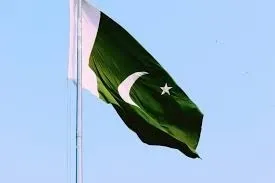Is the Cost of Power in Pakistan’s Military Economy Undermining Its Future?

Synopsis
Key Takeaways
- Pakistan’s military economy is expanding despite economic challenges.
- The military's share of GDP is significantly high compared to education and healthcare.
- Military businesses, referred to as milbus, impact local economies adversely.
- Reforming civil-military relations is essential for economic stability.
- Transparency and accountability in military enterprises are crucial for public welfare.
New Delhi, May 25 (NationPress) The persistent economic challenges facing Pakistan are acknowledged worldwide. In recent times, the country has encountered alarming rates of inflation, a continuous crisis regarding foreign exchange reserves, and a staggering debt load. These factors have resulted in widespread unemployment, heightened poverty levels, and daily struggles for a populace already ensnared in the turmoil of recurring terrorist acts and military operations that ostensibly aim to address it.
However, despite this deteriorating situation and the harsh repercussions of austerity measures enforced by the IMF on the citizens, Pakistan's disproportionately large military seems to remain unscathed and is, in fact, gradually increasing its share of the national economy.
The military's extensive role in Pakistan’s domestic affairs goes well beyond politics and foreign relations, significantly infiltrating the economic domain. To illustrate, the military commands a significant portion of the GDP -- Pakistan's defense spending for FY 2025 was recorded at 2.3% of GDP, surpassing similar figures for India, China, and the European Union.
As per a study by a leading business platform, Pakistan's defense budget saw an annual growth rate of 12.6% from FY17 to FY25, compared to India's 8%. In stark contrast, only 2% and 1.3% of the GDP were allocated to education and healthcare, respectively.
Additionally, the military has created a vast private conglomerate, often referred to as the ‘milbus’ (military business) -- a term coined by noted scholar Ayesha Siddiqa in her influential book Military Inc.: Inside Pakistan’s Military Economy.
Through a network of commercial ventures, including the Fauji Foundation, Army Welfare Trust, Shaheen Foundation, Bahria Foundation, and the controversial Defence Housing Authority (DHA), the military has intertwined itself across various sectors such as real estate, banking, manufacturing, agriculture, shipping, education, and media. Some estimates indicate that the military holds control over approximately 12% of the nation’s land.
Even though the military and its supporters argue that the professionalism, stability, and efficiency it embodies are reflected in its economic activities, many critics contest the monopolistic, expansive, and opaque nature of this military dominance.
Defense-operated industries stifle local competition and private enterprise, while gaining from tax benefits and minimal regulatory oversight.
By merging the roles of protector and profiteer, the military prioritizes strategic positioning and its own commercial interests over public welfare and market equity principles. Such concerns are intensified when specific ventures become embroiled in corruption scandals, like the DHA Valley Islamabad fraud, or neglect public interests, as seen in the Indus canals initiative.
The DHA—originally established to provide affordable housing for retired military personnel but now catering to luxurious residential projects—has faced severe criticism over dubious land acquisitions and community displacements to benefit the affluent. Furthermore, the involvement of senior military officials in the 2021 Pandora Papers revealed the extent to which they channel vital national assets through offshore financial avenues.
The ‘milbus’ in Pakistan has not only worsened the ongoing and serious underinvestment in human development but also solidified the military’s considerable economic power, reinforcing its political supremacy within the nation. It is widely recognized that the military remains the most formidable institution in Pakistan, having directly governed for nearly three decades while also wielding substantial influence behind the scenes during civilian governance.
Given the military’s extensive grip on the economy, civilian governments are significantly deprived of the capacity to make autonomous decisions that reflect the needs and interests of the populace.
Consequently, the military's expansive economic domain in Pakistan directly influences the nation’s socio-economic stability. On one hand, defense-operated enterprises—shielded from public audits and regulatory scrutiny—form monopolies that undermine local businesses, drain public resources, and exacerbate inequality.
On the other hand, the ‘milbus’ entrenches authoritarianism, rendering civilian governments largely symbolic. In a time when the country’s economic crisis continues to escalate, causing immense hardship for ordinary citizens, it is crucial to critically evaluate the distribution of national resources, particularly those allocated to the military.
The military's extensive commercial operations must be subjected to the same regulatory standards as civilian businesses, with measures taken to limit its market dominance.
Achieving this necessitates a fundamental recalibration of civil-military relations, alongside an introspective discussion regarding the appropriate role of the military within a democratic framework.









